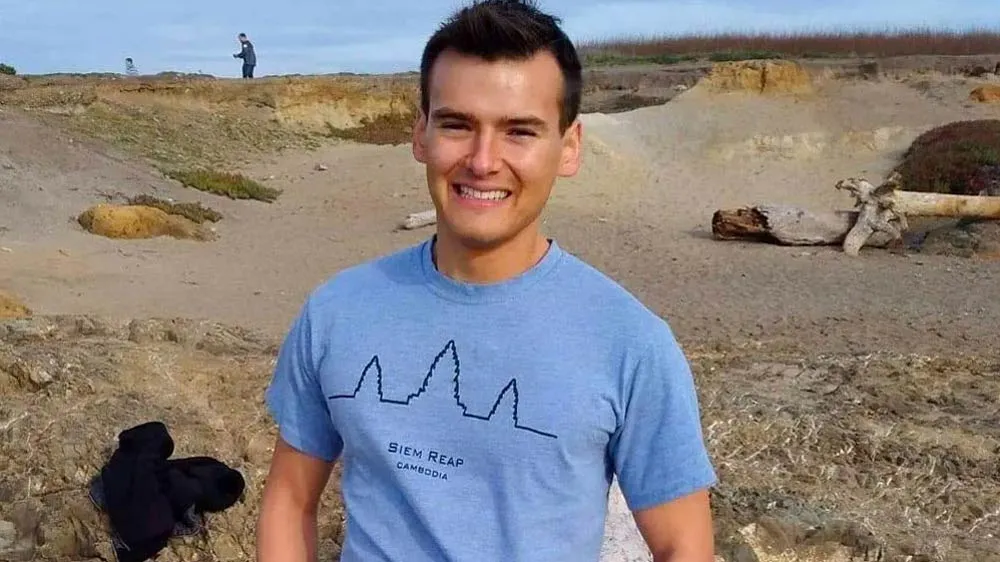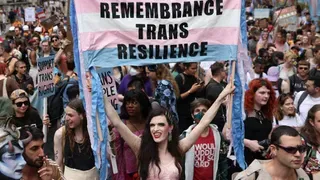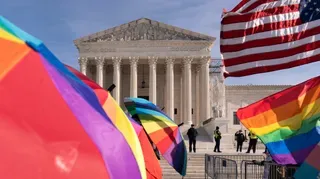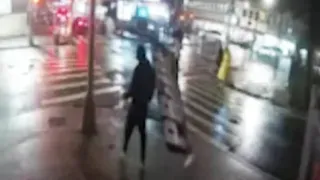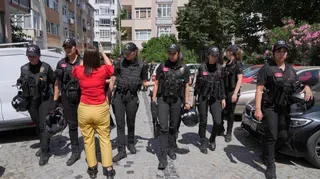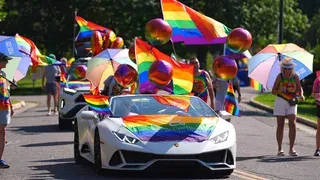July 28, 2009
El Paso Stands up for GLBT Equality After Gay Kiss Incident
Kilian Melloy READ TIME: 4 MIN.
In 2003, the city of El Paso approved an anti-discrimination ordinance that extended protection to gays and lesbians, along with other minorities, in the areas of service and accommodation.
The ordinance stated, "The city of El Paso firmly rejects acts of discrimination, intolerance and bigotry," reported a July 22 article in the El Paso Times.
Now, the El Paso Times reported in the same article, the city council has reaffirmed those principles following an incident in which a security guard allegedly ejected a party of gay customers from a restaurant after one man kissed his boyfriend.
The resolution, which passed without a single dissenting vote on July 21, underscored the city's values of "acceptance, tolerance and diversity," the article said.
The incident took place June 29 at a restaurant called Chico's Tacos, the article recalled, with the security guards calling for the police.
When the police arrived, an officer threatened to arrest the men under a now-invalidated Texas law banning same-sex intimacy.
That law, and others like in nationally, was struck down in 2003 when the U.S. Supreme Court found that such laws contradict the Constitution.
The article quoted council member Steve Ortega, the resolution's sponsor, who said, "In 40 years, we'll look back on this that this is the right thing to do."
Added Ortega, "This is the civil-rights issue of our time."
The article also said that the City Manager, Joyce Wilson, had indicated that the El Paso police department would provide more comprehensive training to its officers.
The resolution drew some criticism from the public; the article reported that one man, identified as Bob Strong, spoke out against it, calling tolerance a "euphemism for encouraging sodomy."
Countered another council member, Eddie Holguin Jr., "I think people need to be tolerant of all views.
"That's what makes this country unique."
The article noted that El Paso was ahead of the national curve in 1962, when a similar ordinance extended anti-discrimination protection to racial minorities.
A July 26 article in the same newspaper followed up on the civil rights aspect of the story in noting how racial minorities have gradually overcome prejudice, with gays and lesbians also struggling for full legal and social equality.
But not all racial minorities see the struggle for gay equality as similar to their own history of hard work for civil rights.
The article noted that Carl Robinson, an African American member of the city council who hails from Cleveland, saw a significant difference. For one thing, the article said, Robinson recalled being threatened as a youth by a man carrying a switchblade; the young Robinson was told that he did not belong in the neighborhood, where he was hanging out with his friends at the time, because that was where whites lived.
Said Robinson, "It kind of bothers me when we start making those comparisons because there is no comparison.
"We're talking about two different eras" when it comes to today's civil rights struggle for gays and lesbians and the horrific violence faced by African Americans of more than a generation ago.
But even if it is not as widespread and systematic, gays and lesbians would disagree with any claim that they are not targeted for violence. Indeed, recent crime statistics show an increase in anti-gay bias crimes.
It's that same underlying conflict of antipathy-driven violence tearing at the fabric of civilized society that makes the two struggles seem very similar to some, including University of Texas at El Paso anthropology professor Josiah Heyman, who was quoted in the article as saying that the gay and lesbian struggle for full equality is "definitely a movement."
Explained Heyman, "It worked because it did appeal very effectively to the moral impulse on the part of the public."
Despite the differences in the challenges faced by gays now and racial minorities in decades past, "It's a comparable struggle for equal treatment before the law," Heyman was quoted as saying.
While the men who were ordered to leave the Chico's Tacos restaurant said that the incident was sparked by a mere kiss, the restaurant's management disagreed, saying that the men were causing a much more serious disturbance before they were asked to leave.
That pattern is consistent with other recent controversies involving the police or security guards and gay men in public places; the article cited two men arrested for sharing a kiss at a Mormon-owned plaza in Salt Lake City on July 9; the church, however, claims that the men were groping one another and that foul language also entered the picture.
A police raid on a gay bar in Fort Worth was also seen in different lights by the gay patrons, who said that police entered the establishment aggressively on the 40th anniversary of the Stonewall Riots, and the police, who insisted that the "raid," which included seven arrests, was a mere spot-check on the establishment that turned ugly when the patrons of the bar began to treat the officers in profane and unruly manners.
But such incidents can have positive repercussions: as noted in an EDGE article from July 16, Equality Texas and the American Civil Liberties Union came together on July 13 to determine how to better related to law enforcement, as well as educate members of the public about their rights under the law.
In Fort Worth, a new GLBT liaison officer was appointed in the city's police department.
Kilian Melloy serves as EDGE Media Network's Associate Arts Editor and Staff Contributor. His professional memberships include the National Lesbian & Gay Journalists Association, the Boston Online Film Critics Association, The Gay and Lesbian Entertainment Critics Association, and the Boston Theater Critics Association's Elliot Norton Awards Committee.
